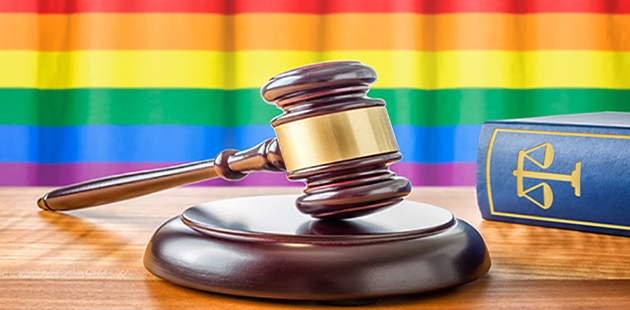 Prime Minister Malcolm Turnbull has committed to holding a plebiscite on whether Australia should legalise same-sex marriage by the end of the year if the Coalition is returned to government.
Prime Minister Malcolm Turnbull has committed to holding a plebiscite on whether Australia should legalise same-sex marriage by the end of the year if the Coalition is returned to government.
One of the reasons debate around same-sex marriage is so highly charged is because it indicates a long-overdue shift in our cultural acceptance of LGBTI people, and a waning of the influence of the Catholic Church’s more conservative elements.
In light of this shift, Australia should also reconsider other remnants of its historic acceptance of institutionalised prejudice against LGBTI people – that is, the religious exemptions to anti-discrimination laws.
What are the exemptions?
The main religious exemptions to anti-discrimination law are set out in Sections 37 and 38 of the Sex Discrimination Act.
These exemptions allow religious organisations to discriminate in a range of ways. This includes discrimination against a person on the basis of their sexuality in relation to the employment of teaching staff, and the provision of education and training. This is provided that the discrimination is in:
… good faith in order to avoid injury to the religious susceptibilities of adherents of that religion.
The justification most often provided for these exemptions is the need to protect freedom of religion, which is provided for under Article 18 of the International Covenant on Civil and Political Rights (ICCPR).
However, this freedom is not absolute and must be balanced against other rights and freedoms – particularly the right to equality, which is protected under Articles 2 and 26 of the ICCPR. The question we need to consider is whether our current system sets the right balance. What are the implications of permitting religious organisations to discriminate against LGBTI people?
What is the right balance?
Some religious exemptions, such as the one that applies to the ordination or appointment of priests and ministers, are relatively limited in their scope and capacity, with little effect on overall equality in Australian society. However, the same argument cannot be made in relation to their operation of religious schools.
Religious schools make up a significant proportion of the education sector in Australia and, significantly, receive a considerable amount of state funding. This gives the church enormous influence in Australian society, empowering it to impose its value judgements on people who do not share them.
The exemptions thus can have a serious effect on equality in Australian society. Under the current system, religious schools can (and do) threaten the employment of teachers who identify as LGBTI and deny support to students who similarly identify.
The situation for LGBTI students is particularly dire. Research has found that these young people experience far higher rates of bullying and depression than their peers, and are significantly more likely to attempt suicide as young adults. Schools that endorse prejudicial values have been found to exacerbate negative feelings for LGBTI students. Supportive school environments can make a difference to these appalling statistics.
By allowing this discrimination to continue – supported by state funding – Australia is sanctioning the denial of equal rights to vulnerable young people.
How do we approach the issue?
Some people argue the appropriate response is for individuals to simply boycott these institutions. Given the dominance of Christian schools within the education sector, the threat to employment for LGBTI teachers imposes a high cost on their right to equality. The option to boycott is patently inapplicable when it comes to schools.
And, given it is mostly parents who select schools for their children, LGBTI students are not free to boycott schools that practise discrimination. Human rights are not absolute, especially when they clash with the rights of others. If religious organisations want to be free to continue to practise discrimination in the name of Christian values, at minimum they should not receive taxpayer funding to do so.
The importance of supporting LGBTI young people within the education system has been receiving a lot of attention lately, particularly due to both the success of, and controversy surrounding, the Safe Schools Coalition. There have also been moves from within the Catholic education sector to review their approach to supporting same-sex-attracted students.
These are positive steps towards shifting the status quo in Australia. They help Australia move towards a society that better supports LGBTI young people regardless of where they go to school. However, these initiatives are voluntary and do little to protect the employment of LGBTI teachers. A more comprehensive approach is needed if we are going to move towards a truly equal society.
Anti-discrimination law exemptions don’t strike the right balance between rights and freedoms
Cristy Clark, Lecturer in Law
This article was originally published on The Conversation. Read the original article.
